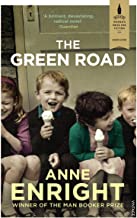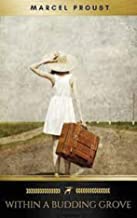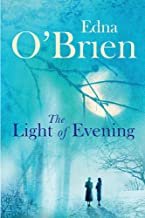Thomas Piketty’s Capital and Ideology is a monumental
achievement. Its scope is vast, its size is daunting, its scholarship and vision
both quite breath-taking on every one of its 1000-plus pages. Ostensibly, it
claims to be an analysis of the origins, politics and economics of inequality,
but it goes considerably deeper and further than its brief. This work is
nothing less than a snapshot of global economic history and politics taken at
the time of writing. Though the historical element might be seen in different
forms via the lenses of centuries and assumed perspectives, the book’s analysis
of current political issues was always going to be subject to faster
change. I doubt whether Thomas Piketty
himself would have predicted that, just a few months after his work’s publication,
the global economic and political landscape would be redrawn by a new,
microscopic virus. But that is exactly what has happened. And, given the
effects on wealth and asset distribution the author attributes to the
capital-destroying wars that dictated the history of the twentieth century, one
wonders what a post-Covid analysis of the mechanisms that create and maintain
inequality might look like. One suspects that the political prescriptions in
the book’s last chapter may just, out of sheer necessity, have been rendered
more likely.
Capital in the Twenty-First Century charted the
origins and extent of inequality in human societies. Capital and Ideology
follows on by examining current and historical circumstances and mechanisms
that determine its extent and influence its propagation. The book charts
comparisons of inequality across countries, continents, cultures and eras. In
doing so, its author uses much more than statistical comparisons. Historical
and cultural perspectives are offered. Economic analyses are suggested.
Crucially, societal structures are analysed, especially those of triumvirate
societies, where the ownership of religious, scientific and military power
provide the justification and the means of establishing and maintaining skewed ownership
of assets. Though the book covers much ground, many different civilizations,
locations and eras, the overall analytical focus is never lost.
A criticism of such an achievement may seem petty, but
the book could have profitably dealt with one of its weaknesses much earlier. A
constantly aired opinion of Thomas Piketty’s work is that, like all socialists,
he wants everyone to be the same, to compress all to the same lowest common
denominator. This, the criticism continues, would stifle creativity and drive
in any society that tried to implement his recommended policies or even tried
to address the obvious and growing inequality caused by market capitalism.
Readers of Capital and Ideology, however, will have to wait until the book’s
last chapter before reading this passage.
“A just society is one
that allows all of its members access to the widest possible range of
fundamental goods. Fundamental goods include education, health, the right to
vote, and more generally to participate as fully as possible in the various
forms of social, cultural, economic, civic, and political life. A just society
organizes socioeconomic relations, property rights, and the distribution of
income and wealth in such a way as to allow its least advantaged members to
enjoy the highest possible life conditions. A just society in no way requires
absolute uniformity or equality. To the extent that income and wealth
inequalities are the result of different aspirations and distinct life choices
or permit improvement of the standard of living and expansion of the
opportunities available to the disadvantaged, they may be considered just. But
this must be demonstrated, not assumed, and this argument cannot be invoked to
justify any degree of inequality whatsoever, as it too often is.”
Let’s juxtapose this quote from page 967 of Thomas Piketty’s
book with the following: “Above all, we will listen to the people who have
felt left behind by the last few decades of economic growth and want to have
control of their future. (We) will give the public services the resources they
need, supporting our hospitals, our schools and our police. We will help people
and families throughout their lives…” This latter passage is quoted
verbatim from the webpage of the British Conservative Party, from the manifesto
upon which they fought their successful campaign for the 2019 election, an
election where an unprecedented number of voters from disadvantaged communities
(largely as a result of previous Conservative governments’ priorities) opted to
vote for the party in the hope they would honour a promise to “level up” the
country. There seems to be electoral kudos in levelling, despite the opinion of
right-wing politicians who extol the need for libertarian individualism married
to economically deregulated separatism. Thomas Piketty analyses such tendencies
and offers a paradigm to explain these shifting political alliances.
Capital and Ideology is the perfect text for anyone
needing an update on the world. It has so many succinct and pertinent analyses
that even a list of its insights would be a tome in itself. Some examples will
suffice.
For instance, if anyone finds it hard to understand
why certain elite groups from Western democracies might now be sympathetic
towards Putin’s Russia, Thomas Piketty can enlighten.
“It is important to
note that it is very difficult to measure and analyse income and wealth in
postcommunist Russia because the society is so opaque. This is due in large
part to decisions taken first by the government headed by Boris Yeltsin and
later by Vladimir Putin to permit unprecedented evasion of Russian law through
the use of offshore entities and tax havens. In addition, the postcommunist
regime abandoned not only any ambition to redistribute property but also any
effort to record income or wealth. For example, there is no inheritance tax in
postcommunist Russia, so there are no data on the size of inheritances. There
is an income tax, but it is strictly proportional, and its rate since 2001 has
been just 13 percent, whether the income being taxed is 1000 rubles or 100
billion rubles.”
When this is placed alongside the fact that Europe in
general and the European Union in particular is a global outlier in the extent
of its greater equality of wealth and income and we can see immediately why the
libertarian, individualists of the political right, who for example favour
Brexit for the United Kingdom, might also cast an envious glance towards
Russia’s largely unregulated treatment of wealth, no matter how it was amassed.
Thomas Piketty offers numerous such insights. He
analyses India’s castes, charts the French Revolution, analyses politics in the
USA and takes long hard looks at colonialism and empires. And what is more, all
of this is accomplished with transparency and fluidity, so that at no stage
does a reader feel presented with a mere list. The analysis of current
political strands is particularly enlightening.
Piketty rejects the term “populism” as meaningless. He
prefers to use “identitarian” to describe the tendency for many voters in
democracies to retreat behind promised protectionism and fortified borders to
exclude foreigners. In doing so, he sums up both cause and effect in a single
idea, a summary that is both more accurate and more enlightening than
“populism” in terms of understanding the political direction being followed.
But he goes beyond description and offers analysis of motives. He cites, for
example, evidence relating to Poland and Hungary, both of whom currently have
governments that have displayed tendencies to restrict freedom or roll back
liberalism, even to the extent that they are at odds with a European Union they
were once eager to join. Many observers are perplexed by this phenomenon,
noting that both countries have benefitted hugely from European development aid
and inward investment. Piketty’s analysis, however, examines net transfers and
finds that for both countries, capital flow has consistently been out of the
country and towards Europe’s epicentres of wealth. And electorates are aware of
this bloodletting. The only solution, he maintains, is greater political
integration, not less.
He analyses politics in the USA, though obviously not
in great depth. He does, however, make enlightening points about race to
illustrate how the Democrats became transformed from the party of southern
slavery to the natural home of the “ethnic” vote. It is a process that happened
over a century, from the Civil War, when the Republicans were the champions of
opposition to slavery through the New Deal and into the late 1960s, when it was
the Democrats who espoused civil rights.
The author spends much of the early part of the book
identifying the structure of triumvirate societies, where a peasant majority is
ruled by an alliance between warrior and priestly classes who, combined, rarely
accounted for more than ten percent of the population. He then shows how this
structure developed into proprietarianism, which preserved the right of the
ruling classes to own property. This later evolved into capitalism when the
owners of property increased the scale of operations and created
industrialization. He makes a convincing case in relation to the political control
claimed by an alliance of religion and sword that was used to justify and then
preserve property ownership of the ruling minority. Piketty offers the
following, again late in the book:
“I have defined
proprietarianism as a political ideology based
on the absolute defense of private property; capitalism as the extension of
proprietarianism into the age of large-scale industry, international finance,
and more recently to the digital economy. At bottom capitalism rests on the
concentration of economic power in the hands of the owners of capital. In
principle, the owners of real estate capital can decide to whom they wish to
rent and at what price while the owners of financial and professional capital
govern corporations according to the principle of “one share one vote”, which
entitles them, among other things, to decide by themselves whom to hire and at
what wage.”
And then there arose democracy and later war. It was
not that wars had been unknown in the pre-modern era, but he suggests that the
industrialization of war after the dawn of the modern era rendered it more
thoroughly and extensively destructive than it had previously been. Because of
its destruction of property and the creation of debt via interruption of
economic life, war threatened proprietarian societies in a way they had never
before experienced. Democracy also threatened ownership directly unless it
could be manipulated, of course, and both of these threats to the classes born
to own had to be managed. Ownership had previously coped with war losses, the
twice national income debt in Britain after the Napoleonic Wars, for instance,
having been turned to the owners’ advantage by the issuing of bonds their
capital bought and a century of poor people’s contributions rendered lucrative
to their owners via interest and redemptions.
Democracy posed a new type of challenge to the owners
of assets, and still does. So, to explain how systems of inequality can be
maintained after everyone, at least in theory, has an equal say, Thomas Piketty
needs to examine in detail how politics have changed over the last century. He
now finds there exist four almost equally popular political ideologies. He
writes:
“In 2017, 21 percent of
voters could be classified as “egalitarian internationalists” (pro-immigrant,
pro-poor); 26 percent are “inegalitarian nativists” (anti-immigrant, pro-rich);
23 percent are “inegalitarian internationalists” (pro-immigrant, pro-rich), and
30 percent are “egalitarian nativists” (anti-immigrant, pro-poor).”
Furthermore, he finds that there is now a tendency for
there to develop an alliance between the two factions of nativism, an alliance
that does not challenge property rights.
And, crucially, he finds that the social democrat
model that made significant inroads into inequality in the middle of the
twentieth century has now been transformed into an ideology of a Brahmin-like
educated elite, leaving the votes of the losers in the distribution of wealth
to be hoovered into an identitarian trap by the owners of an increasing share
of property. This, in essence, is not dissimilar in character to the concept of
false consciousness that Marxists find they have to apply in order to explain
why masses of people regularly vote or act against their own interests. Here,
Thomas Piketty offers a rational mechanism and a convincing argument by which
false consciousness can be cultivated and exploited, an approach which does not
fall into the distasteful trap of branding poorer people merely stupid.
There is so much in Capital and Ideology that it is
almost impossible to review. Reading it comes close to a life-changing
experience. Please do read it. Do persevere with its length. Take it at a
steady pace and read something else, something contrasting, alongside. Readers
will immediately and repeatedly find themselves amazed at the scholarship, the
revelations and the rationality of the book’s argument. Anyone interested in
our own times should regard it as essential reading. The presence of a virus,
however, probably demands a companion volume, since the political and economic
landscape is now surely transformed, just like war ripped up its design a
century ago.
Eventually, Thomas Piketty champions the politics of
social democracy as the solution to growing inequality and, eventually,
environmental degradation. He cites the example of Sweden, in that:
“it shows that inequality
is not the product of some essential cultural predisposition: in the space of a
few years Sweden moved from the most extreme hyper-inegalitarian proprietarian
system, which survived until 1909-11, to a quintessential
egalitarian social-democratic society once SAP came to power in the 1920s and
then ruled almost continuously from 1932 to 2006.”
With the right policies and crucially an end to the
retreat into identitarian separatism, the author sees a future where, during an
individual lifetime, people can be as entrepreneurial and as successful as they
like, but where tax systems and inheritance management ensure the recirculation
of wealth and capital to ensure it does not become the permanent property of an
ever-smaller elite. A still far from perfect Europe is the example, while the
libertarian, identitarian deregulators pose the threat.













